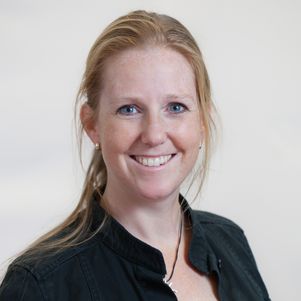Interview: Merle de Kreuk and Luuk Rietveld talk about diversity
DEWIS is interviewing academics at TU Delft to talk about diversity at work, women and academic leadership and inclusive, safe working environments.
Today’s interview is with Merle de Kreuk, professor of Environmental Technology in the Faculty of CEG and Luuk Rietveld, professor of Drinking Water & Urban Water Cycle Technology and director of the Water Management Department in the same faculty.
Luuk: “As a student, one of the things that really deterred me from coming to TU Delft was the fact that it was a male stronghold – it really put me off. The fact that it’s now slowly changing is a good thing. There is nothing more important than a good working environment. In my view, a diverse department with more women and more nationalities is even better. I also notice that other staff and students feel the same.”
Merle completed her doctoral research in Delft and spent nine years developing aerobic granular sludge technology in the Biotechnology department of the Faculty of Applied Sciences. She then left to work for the water authority for three years before returning to Delft in 2011. Why? Merle: “Here, if something new happens, everyone responds enthusiastically – that suits me better. And I just really love spending time with young and motivated people, students and PhD candidates.” Merle was appointed to the position of full professor in 2017.
Merle: “The step up to the position of professor happened really fast. I wondered if I was really ready for the move. I actually wanted to wait until the children had left home.”
Luuk: “Merle was already shortlisted for nomination, but when the so-called Westerdijk funds(1) became available, the opportunity came sooner than expected and Merle needed some encouragement.” “Yes,” says Merle, “that support was really important for me. Having a sponsor during your career is essential. You need someone who can see your potential. Someone who pushes you forward now and again”.
A lot has changed. “When I arrived here, there were almost no female students and now 25% of the students are women.” Female students see Merle as a role model. They think: “Okay, so this means I can have a family and an academic career and still become a professor,” says Luuk.
Merle: “When I started working at a shipbuilding company for dredgers after graduating, I was the only female engineer. I noticed some unconscious prejudices among both men and women. I remember that the female company physician thought that I was a member of administrative staff. She didn’t think to ask.”
Luuk: “At times, you have to make unconventional choices. People often ask for experience abroad, and that can prove an obstacle for young mothers. We solved the problem in a different way by offering Merle a sabbatical of several months. It was partly paid for from the Aspasia fund, which aims to encourage female academics. She actually wrote her Vidi grant application during that time.”
Merle: “This is a nice group, in which you can feel safe and secure. We’re happy to see each other succeed. If someone secures a project and it suits someone else better, you simply pass it on. We also give each other a lot of compliments. It's motivating and contributes to the good morale.”
Luuk: “Today’s leaders no longer march on ahead. They support you, listen and provide direction. It boosts morale and encourages openness. Good career progression is also important in the department, together with the fact that women know they can advance to the position of professor.”
Luuk: “Every researcher pursues a different path. Young researchers often want to know what they should do to be promoted and I say that the most important thing is to be good. If you’re good, everyone knows about it. The secret is to work out what suits you best.”
(1) The Westerdijk funds, named after Johanna Westerdijk, the Netherlands’ first female professor, was a nationwide scheme in which universities could apply for money to appoint female professors.

